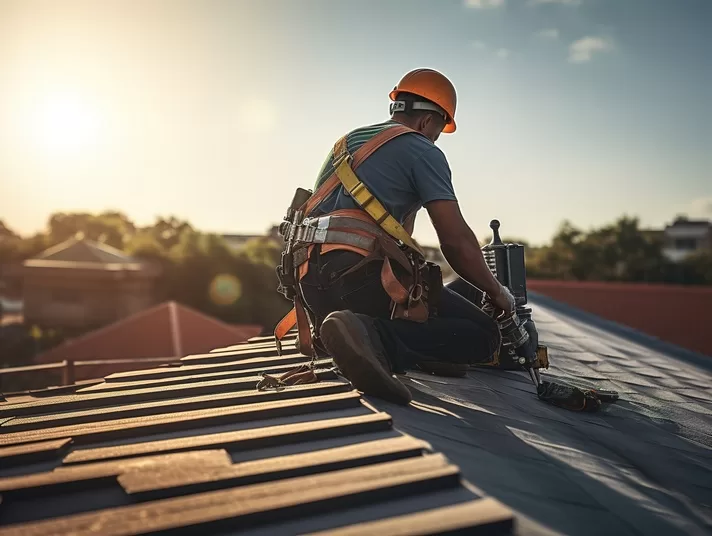Explore the pros and cons of epoxy resin flooring: durability, curing time, cost, and health safety considerations.
Choosing Epoxy Resin for Your Flooring Needs: What You Need to Know
If you’re considering epoxy resin as a flooring solution, it’s vital to arm yourself with all the necessary information about this versatile material before making your final decision. The choice of floor material is not one to be taken lightly, and epoxy resin, like any other option, has its own set of advantages and disadvantages.
Don’t fall into the trap of choosing your floor solution without conducting thorough research first.
Epoxy resin’s rise in popularity can be attributed to several key features:
- Excellent Mechanical Strength: Epoxy resin provides a robust and durable surface perfect for high-traffic areas. Its mechanical strength often makes it a more affordable alternative to options like welding.
- Chemical Resistance: Using epoxy resin means you no longer have to worry about potential chemical reactions ruining the seal on your flooring.
- Heat Resistance: If you’re working with electronics or engaged in industrial operations, epoxy resin’s resistance to heat can be an incredible asset. This same quality also renders it an excellent choice for home projects, including garage floor coating.
If you’ve had experience using epoxy resins before, you’ll be familiar with its strengths as well as its curing process. Its balanced properties make it suitable for a wide range of applications.
However, before you take the plunge and choose epoxy resin for your flooring needs, it’s important to consider the potential drawbacks that come along with this material:

Understanding Epoxy Resin Curing Time
Epoxy resin, despite its numerous benefits, does require a significant amount of time to fully cure. The curing process is a vital aspect of successful epoxy application as it directly affects the durability and strength of the final product.
Factors Affecting Curing Time
The length of the curing process can vary considerably based on several factors:
- Project Size: The size and intensity of your project play a vital role in determining the curing time. For instance, a large-scale flooring project that involves multiple layers of epoxy coating may take up to 72 hours to dry and cure thoroughly.
- Room Size: Conversely, smaller projects such as garage or bathroom floors may require significantly less time – often around 24 hours.
- Climate Conditions: The environmental conditions where epoxy is applied also have a huge impact on its drying time. If you live in an area with high humidity levels, the curing process may extend due to the moisture in the air.
Remember: The estimated times are averages and actual times can vary. Always check manufacturer’s instructions for specific cure times.
Implications of Extended Curing Time
The extended curing time required for epoxy resin applications could pose certain inconveniences:
- Limited Accessibility: If the resin is being applied in high-traffic areas within your home or workplace, this can disrupt normal activities due to restricted access until curing is complete.
- Delayed Project Completion: If you’re working on a larger project with multiple stages, the long curing time could potentially push back your timeline.
Despite these challenges, it’s critical not to rush the curing process. A well-cured epoxy resin results in a strong, durable surface that can withstand heavy use over an extended period. Therefore, it’s always recommended to allocate sufficient time for epoxy resins to fully cure and achieve optimal results.
Assessing the Cost of Epoxy
In general, epoxy is not a budget-friendly option. The cost of epoxy tends to be higher than other types of coatings due to a combination of unique factors:
- Formulation requirements: The complex chemical structure of epoxy requires specific raw materials and precise manufacturing processes, both of which add to its overall cost.
- Mechanical strength: Epoxy is renowned for its durability and resilience. This superior mechanical strength, which allows it to withstand heavy use and harsh conditions, contributes to its higher price point.
If you’re working within a tight budget or looking for a more affordable coating solution, there are alternatives you might want to consider. For instance, resin is often used in crafting industries – especially for handmade jewelry – due to its relatively lower cost.
“Key Point: If cost isn’t your primary concern and you value durability and water-resistance highly, then epoxy could be an excellent choice for your project.”
Epoxy’s value extends beyond its initial cost, offering long-term benefits that can make the investment worthwhile:
- Water Resistance: One of the epoxy’s standout features is its impressive resistance to water damage. This makes it an ideal choice for applications in moisture-prone environments.
- Underwater Formulations: There are even specific formulations of epoxy designed for underwater use. This makes it a highly versatile material that can be used in a variety of challenging circumstances.
Remember: When choosing a coating material like epoxy or resin, it’s important to balance the upfront costs with the long-term benefits and overall quality of the product. It’s not just about finding the cheapest option; it’s about finding the best value for your specific needs.
Strong Fumes and Health Safety
Epoxy, although a practical and versatile material, has its downsides. One such downside is the strong, pungent odor it emits during application. This odor isn’t just unpleasant; it can be hazardous to your health if you’re exposed for prolonged periods.
Protective Gear
Most professionals who work with epoxy regularly equip themselves with protective gear. This is not just a preference; it’s a necessity. The typical protective gear includes:
- Masks: Essential to prevent inhalation of the toxic fumes.
- Goggles: They protect your eyes from any accidental splashes during the application process.
It’s crucial to note that these safety measures aren’t optional but rather mandatory when dealing with epoxy.
Health Implications
The fumes from epoxy are more than just unbearable; they can be toxic. For individuals with existing respiratory conditions, such as asthma, exposure to these fumes can exacerbate their symptoms or trigger an attack. Therefore, extreme caution should be exercised when handling epoxy.
Key Point: Epoxy can cause health problems if appropriate precautions aren’t taken.
Medical Consultation
Before embarking on a project involving epoxy resin, it’s recommended that you consult your healthcare provider, particularly if you have pre-existing health concerns or if you’re prone to respiratory issues.
Ventilation
When applying epoxy resin in any space within your home, ensuring proper ventilation is vital. A well-ventilated room helps disperse the strong fumes and reduces the concentration of potentially toxic vapors in the air.
Remember: Your safety is paramount. Always prioritize proper ventilation when working with epoxy resin.
By taking these precautions seriously, you can safely use epoxy resin while minimizing potential risks associated with its application.
Potential Hazards: Epoxy is Slippery When Wet
It’s essential to understand that one of the characteristics of epoxy resin is its density. This density, coupled with its smooth finish, can make it quite slippery when wet, presenting a potential hazard in certain environments.
Consider this scenario: You’ve applied epoxy resin on your garage or basement floor. It looks fantastic with its high gloss and seamless finish. However, as soon as it gets wet – say from a spilled drink or a rainy day – it becomes a potential slip-and-fall hazard. This could be especially concerning in areas where children or older people individuals frequently move about.
A simple fall might not sound serious, but the consequences can be severe. From minor injuries like sprains and bruises to more serious ones like fractures or concussions, these accidents can lead to unnecessary medical expenses and emotional distress for your loved ones.
Key Point: Epoxy resin, while aesthetically pleasing and durable, can pose significant risks due to its slippery nature when wet.
Mitigation Measures: Making Epoxy Floors Safer
Despite this disadvantage of epoxy resin, there are mitigating measures that you can implement to make your epoxy floors safer. The great news is that these measures can be incorporated during the application process itself.
Before you start applying epoxy resin, it’s crucial to discuss it with epoxy flooring professionals. These experts can guide you on how to make your epoxy floor less slippery by adding certain materials during the application process.
Here are some options they might suggest:
- Additives: Special additives can be mixed into the epoxy resin before it’s applied to create a textured surface that provides extra grip.
- Topcoats: Certain types of topcoats containing aggregates like sand or aluminum oxide provide an anti-slip finish.
- Matting Systems: These are installed over the epoxy floor to provide a slip-resistant surface.
Remember: The safety of your epoxy floor largely depends on the application method you choose. Consult with professionals to ensure you’re making the right choice for your specific needs.
Epoxy and Respiratory Health: The Risks Involved
Epoxy, while valuable in numerous applications ranging from flooring to art, can present certain health risks. One of the most significant of these is the potential for respiratory illnesses.
When you are exposed to epoxy fumes, your respiratory system – specifically your throat, nose, and lungs – may be adversely affected. The primary symptoms to be aware of include inflammation and irritation of these respiratory organs.
What happens when you inhale epoxy fumes?
Inhaling epoxy fumes could lead to several health conditions, often depending on the duration and intensity of exposure. The most common outcomes include:
- Short-term effects: Initial reactions typically involve inflammation and irritation of the nose, throat, and lungs.
- Long-term effects: Repeated exposure could lead to more serious conditions such as asthma.
It’s also important to note that even after successful treatment for conditions like asthma, there may still be epoxy particles trapped in your respiratory system. This residual presence could potentially result in severe health complications down the line.
According to epoxy professionals, dust should not be inhaled. If inhaled, seek medical advice as soon as possible.
Preventive Measures
To mitigate these risks, it’s crucial to implement appropriate safety measures when working with epoxy resin:
- Always work in a well-ventilated area.
- Use protective gear such as masks or respirators.
- If accidentally inhaled, ensure you seek immediate medical attention.
Remember, prevention is always better than cure. So always prioritize safety when dealing with epoxy resins or any other potentially hazardous materials.
Prone to Trapping Dust and Air Bubbles
When working with epoxy resin, you may notice that the applied coating could trap dust particles or air bubbles. This isn’t a result of faulty application, but rather a characteristic feature of the material itself. Due to the adhesive nature of epoxy resin, it tends to capture and retain tiny particles present in its immediate surroundings.
Appearance of Bubbles After Drying
Once the epoxy resin coating has dried and solidified, these trapped particles become visible. You might observe small bubbles appearing on the surface. This is an expected outcome because of the sticky nature of epoxy. Although these bubbles do not impact the overall strength or durability of the epoxy coating, they can potentially affect its visual appeal.
Interesting Fact: Air bubbles are primarily formed due to reactions between epoxy resin and moisture or heat in the environment.
Striving for an Impeccable Finish
Despite these inherent challenges, achieving an impeccable finish with epoxy resin is not entirely impossible. Most professionals in this field continuously strive to perfect their techniques and minimize contamination from external components.
Here are some steps they typically follow:
- Preparation: Ensure that the surface is clean and dry before applying the epoxy resin.
- Environment Control: Implement strict control measures for dust and humidity in the working environment.
- Proper Mixing: Follow specific instructions for mixing epoxy resin and hardener to avoid creating unnecessary air bubbles.
- Careful Application: Apply the mixture carefully to prevent air from getting trapped.
While it’s not always guaranteed to get a completely flawless finish, these precautions can drastically reduce the potential for dust entrapment and bubble formation, thereby enhancing your chances of achieving a near-perfect result.
Remember, when dealing with materials like epoxy resins, meticulousness is key!
The Long-Term Impact of Cracks: Ripples in Your Epoxy Coating
Over time, you may notice ripples or waves appearing on your epoxy-coated floor. This is not an uncommon issue, especially if there are existing imperfections such as cracks or unevenness in the initial surface. Epoxy resin is an excellent adhesive, which means it will adhere strongly to whatever surface it’s applied to — including any flaws that may be present!
Be aware that epoxy cannot bridge over existing cracks. When applied over a cracked or uneven surface, you’ll find that these imperfections are simply carried forward into the new coating, eventually resulting in visible ripples.
If you’re uncertain about how to deal with this issue, don’t hesitate to reach out to an industry expert for guidance and advice.
Preparing Your Surface: A Key Step
The quality of your final result heavily relies on the condition of the original surface. Hence, the importance of applying epoxy resin onto a smooth and uniform surface cannot be overstated.
If your floor is not level or has irregularities:
- You must take steps to repair it before proceeding with your epoxy application.
- Consider using high-quality fillers or pastes designed specifically for floor leveling tasks.
- These products can effectively eliminate unevenness and provide a smooth base for your coating — yes, even on concrete floors!
Remember: A smooth start often leads to a smoother finish!

Conclusion
In conclusion, epoxy resin is a versatile and robust material that offers a range of benefits for flooring needs including excellent mechanical strength, resistance to chemicals and heat, and impressive water damage resistance. However, it also presents several challenges such as extended curing time, higher costs compared to other types of coatings, potential health risks due to strong fumes, the tendency to trap dust particles and air bubbles, and the possibility of ripples appearing over time due to pre-existing surface imperfections.
The successful use of epoxy resin requires a thorough understanding of these factors and careful planning. It’s important to consider the size and nature of your project, the environmental conditions where the epoxy will be applied, appropriate budget allocation, safety measures to mitigate health risks, strategies to avoid dust entrapment and bubble formation, and proper surface preparation.
Despite its potential drawbacks, if managed properly, epoxy resin can be an excellent flooring solution providing durability and long-term value. Remember: it’s not just about finding the cheapest option; it’s about finding the best value for your specific needs.
FAQs(Frequently Asked Questions)
Epoxy resin has several disadvantages, including long curing time, strong fumes with potential health implications, high cost, slippery surface when wet, and susceptibility to trapping dust and air bubbles during application.
When considering epoxy resin for flooring, it’s important to understand the long curing time, potential health risks from fumes, the need for proper ventilation, and the possibility of a slippery surface when wet.
Epoxy resin has a lengthy curing process, which can vary based on factors such as temperature and humidity. It’s essential to be patient and allow sufficient time for the resin to cure properly.
Extended curing time can delay project completion and may require additional safety measures due to prolonged exposure to fumes. It’s important to plan accordingly and consider the impact on project timelines.
In general, epoxy resin is not a budget-friendly option. The cost of materials and professional installation should be carefully considered before choosing epoxy as a flooring solution.
Epoxy resin emits strong fumes that can have adverse effects on respiratory health. It’s crucial to wear protective gear and ensure proper ventilation when working with this material.










